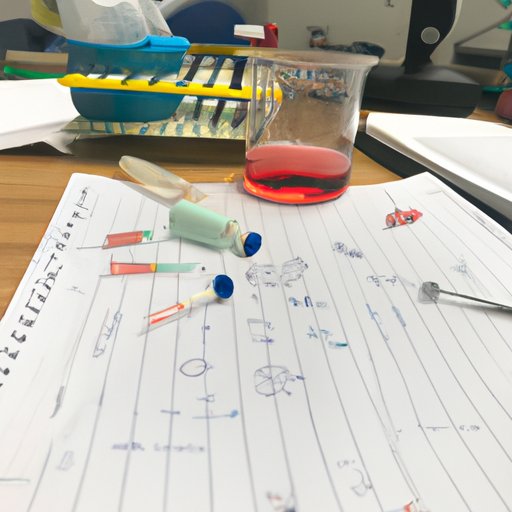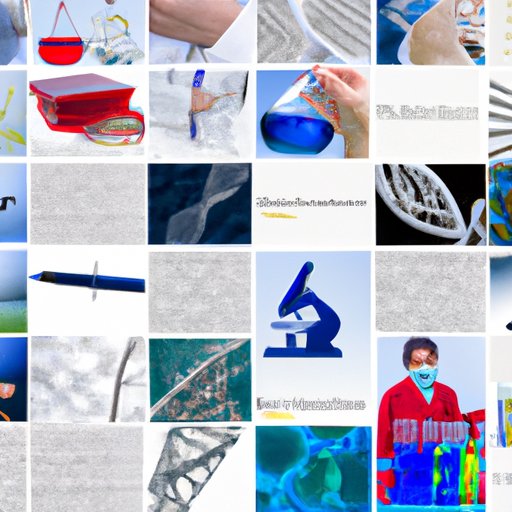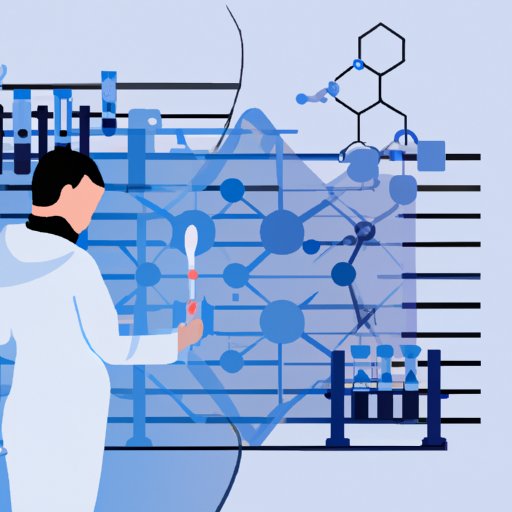Exploring Biomedical Science: An Overview
Biomedical science is an interdisciplinary subject that combines knowledge from biology, chemistry, physics, mathematics, and other related sciences to understand and apply concepts related to the human body. It is a field of study that focuses on understanding the biological processes that are involved in the human body, such as metabolism, genetics, anatomy, physiology, and pathology. The goal of biomedical science is to improve healthcare and advance medical technology by developing treatments and cures for diseases and disorders.

The Basics of Biomedical Science
Biomedical science involves studying the structure and function of the human body, including its cells, organs, tissues, and systems. Different branches of biomedical science include clinical laboratory sciences, physiology, anatomy, pathology, and pharmacology. Clinical laboratory sciences involve using laboratory equipment to analyze samples such as blood or tissue for diagnosis or research purposes. Physiology examines how the body functions in response to different stimuli. Anatomy focuses on the structure of the body and its various parts. Pathology looks at disease and injury and how they affect the body. Pharmacology studies the effects of drugs on the body.

A Look at the Different Fields in Biomedical Science
Clinical laboratory sciences involve using laboratory equipment to analyze samples such as blood or tissue for diagnosis or research purposes. This includes analyzing samples to identify bacteria or viruses, as well as performing tests to detect genetic abnormalities or measure levels of hormones or other chemicals in the body. Clinical laboratory scientists must be knowledgeable in the use of sophisticated laboratory instruments and techniques.
Physiology examines how the body functions in response to different stimuli. This includes studying the interactions between cells, organs, and systems within the body as well as how external factors such as diet, exercise, and environment affect the body. Physiologists use their knowledge to develop treatments and cures for diseases and disorders.
Anatomy focuses on the structure of the body and its various parts. Anatomists observe and describe the form and structure of the body and its organs, as well as how they are organized and how they relate to one another. Anatomists also study the development of organs and tissues throughout the life cycle.
Pathology looks at disease and injury and how they affect the body. Pathologists investigate the cause, progression, and effect of diseases and injuries on the body, as well as develop treatments and cures. Pathologists must be knowledgeable in the use of laboratory instruments and techniques.
Pharmacology studies the effects of drugs on the body. This includes examining how drugs interact with the body’s systems, how they are absorbed and metabolized, and how they produce their therapeutic effects. Pharmacologists use their knowledge to develop treatments and cures for diseases and disorders.
The Benefits of Biomedical Science
Biomedical science has many benefits, including improving healthcare, advancing medical technology, and developing treatments and cures for diseases and disorders. By understanding the biological processes that are involved in the human body, biomedical scientists can develop new treatments and cures for diseases and disorders.
For example, according to a study published in the journal Nature Communications, researchers used biomedical science to develop a new drug that targets a gene mutation that causes a rare inherited disorder called cystic fibrosis. The drug was found to significantly reduce the symptoms of the disorder and improve the quality of life for those affected by it. This is just one example of how biomedical science can be used to improve healthcare.
In addition, biomedical science is also used to advance medical technology. Technologies such as imaging techniques, robotic surgery, and prosthetics are all based on principles of biomedical science. These technologies allow doctors to diagnose and treat diseases more accurately and effectively.
Finally, biomedical science is also used to develop treatments and cures for diseases and disorders. By understanding the biological processes that are involved in the body, biomedical scientists can develop new treatments and cures for diseases and disorders. For example, researchers have used biomedical science to develop treatments for cancer, HIV/AIDS, and Alzheimer’s disease.
The History and Development of Biomedical Science
Biomedical science has a long and rich history, dating back to the ancient Greeks who first studied the human body and its functions. Over the centuries, advances in technology and medicine have allowed biomedical scientists to gain a better understanding of the human body and its functions. Modern advances in biomedical science include the development of imaging techniques such as X-rays, MRI, and CT scans that allow doctors to diagnose and treat diseases more accurately and effectively.

Career Opportunities in Biomedical Science
There are many career opportunities available in biomedical science, including positions in research, education, and healthcare. Professionals in biomedical science typically need a bachelor’s degree in a related field, such as biology, chemistry, or physics. Some jobs may require additional certifications or specialized training. Salaries and benefits vary depending on the position and employer, but most jobs in biomedical science provide competitive salaries and excellent benefits.
Biomedical science is an exciting field with numerous opportunities for growth and advancement. With its focus on understanding the biological processes that are involved in the human body, biomedical science offers the potential to improve healthcare, advance medical technology, and develop treatments and cures for diseases and disorders.
(Note: Is this article not meeting your expectations? Do you have knowledge or insights to share? Unlock new opportunities and expand your reach by joining our authors team. Click Registration to join us and share your expertise with our readers.)
